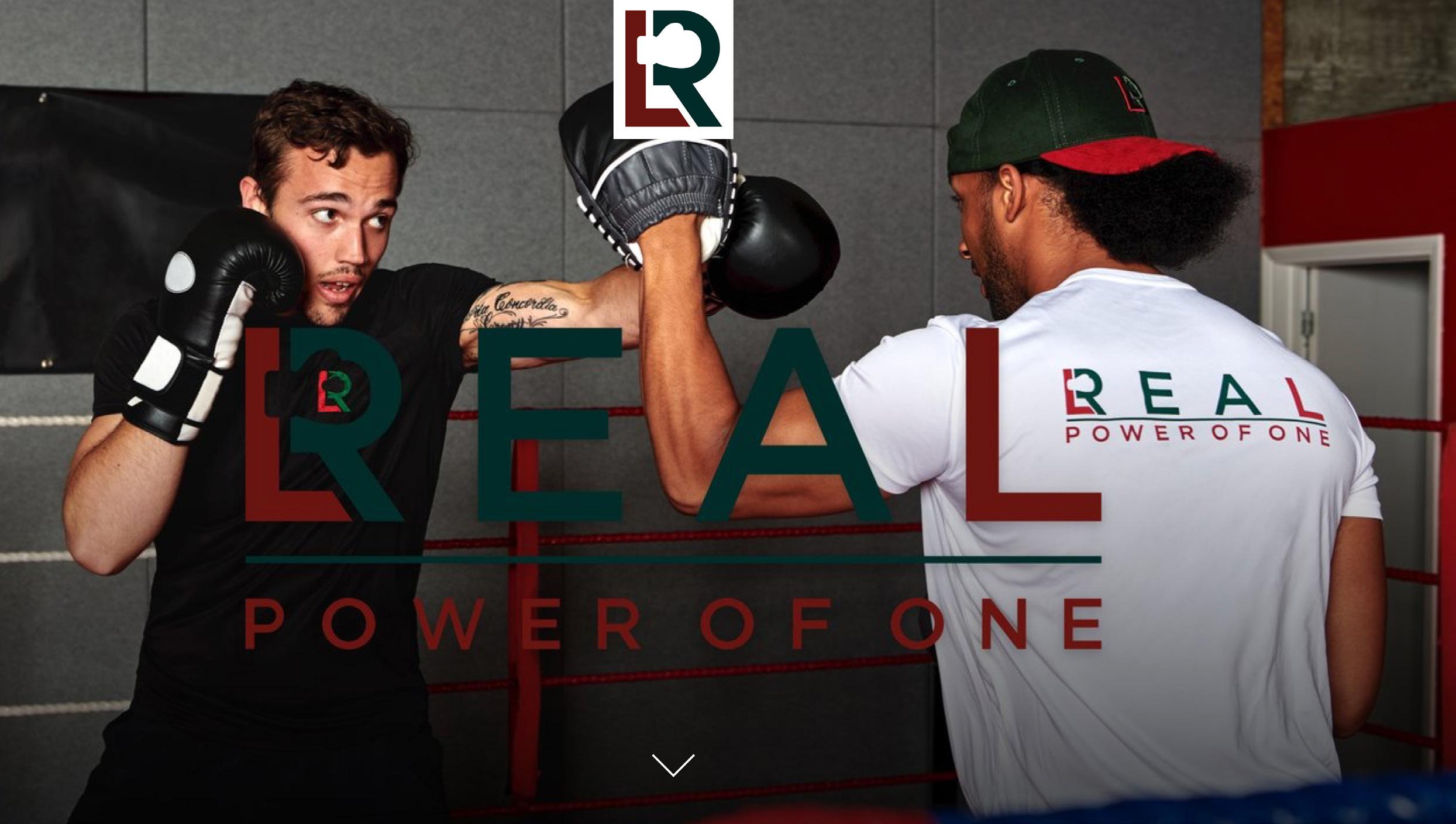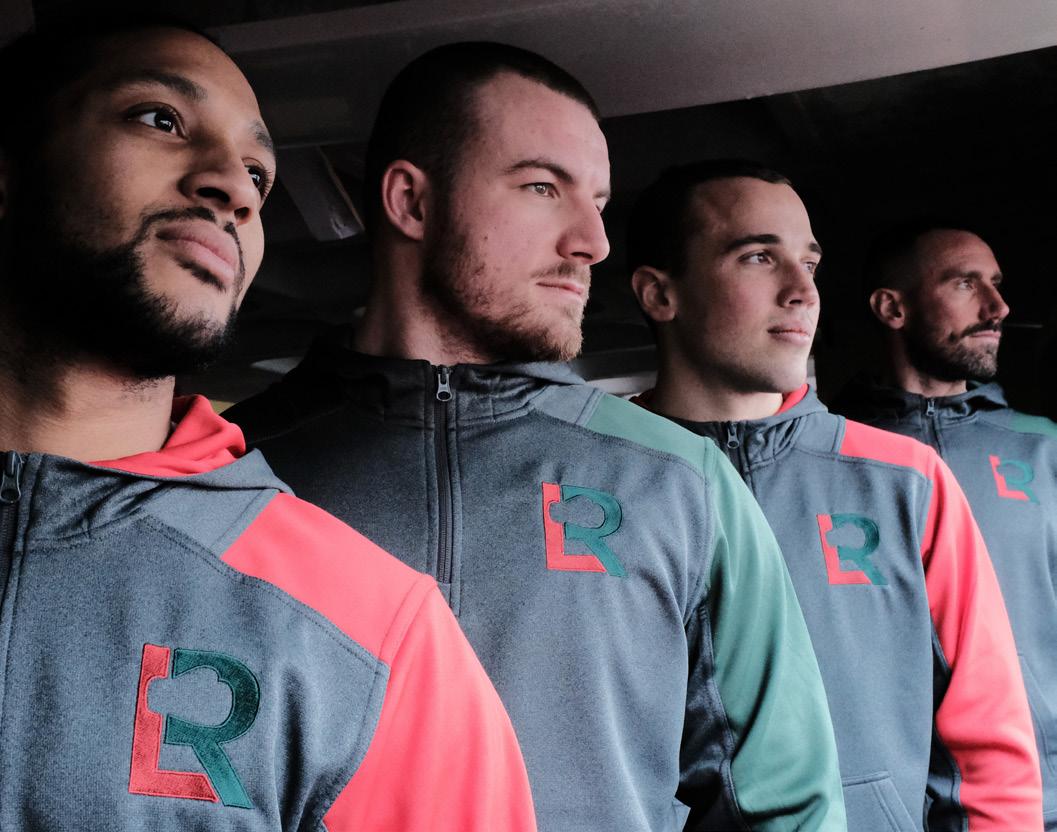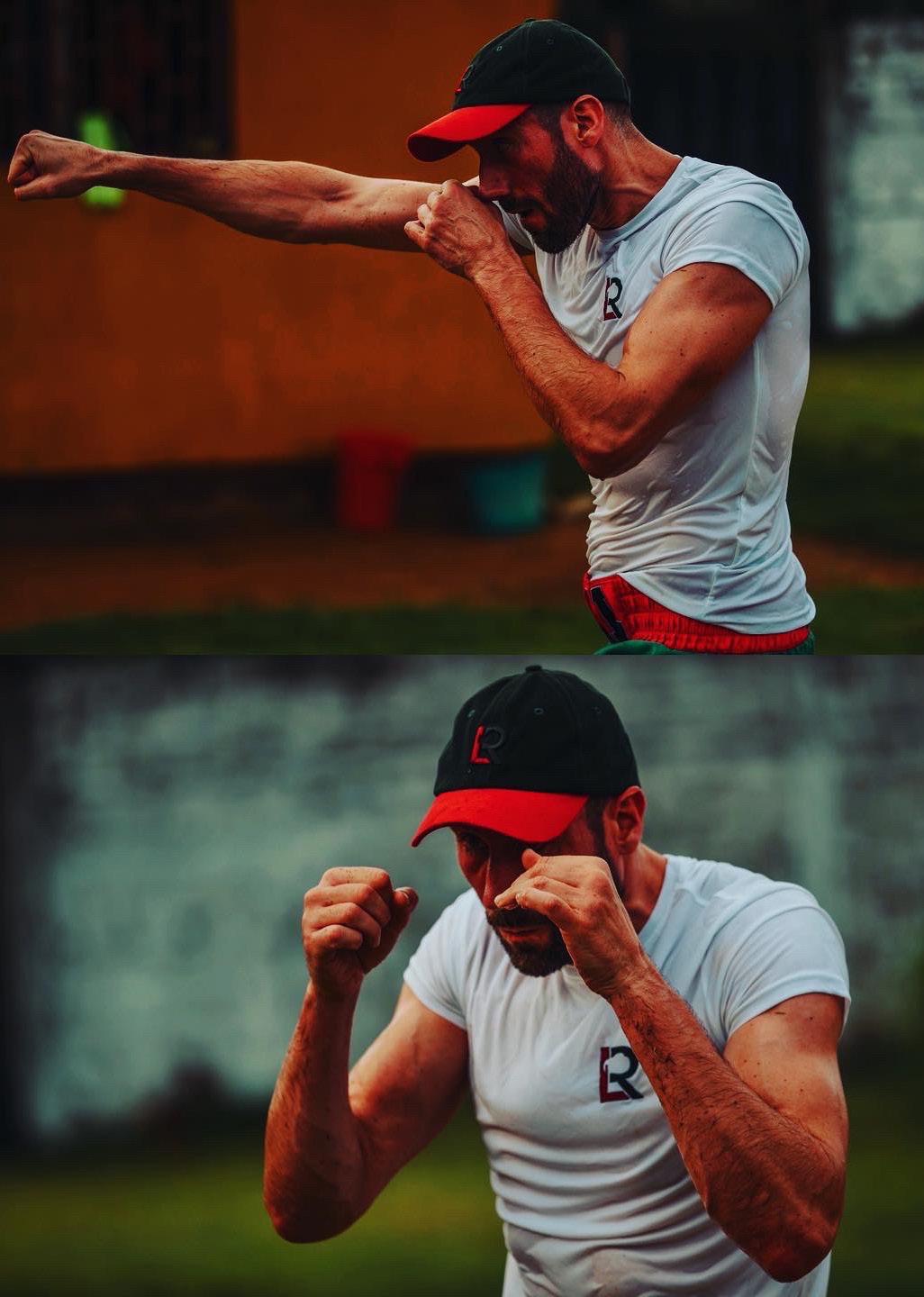
12 minute read
Barry Hearn Chairman of matchroom sport
Today’s and tomorrows heroes Barry hearn speaks about the value of sport and what it will take to find the champions of tomorrow.
Interview by donnie rust
Having shaped the way that the world watches sport and pioneered the global stage for a number of sporting arenas, Barry Hearn the Founder and Chairman of Matchroom Sports (Matchroom.com), is without a doubt one of the foremost authorities on the business of sport and media in sport. I was pleased to have the chance to speak with him regarding the relationship between the two and as always, left the conversation with a better perspective and a deeper understanding. The smooth talking, eloquent gentleman who is always prepared with the perfect sentence or the funniest story is a great Voice in the sporting industry.
As #Sportsider places a great deal of value into the aspirational quality of sports, I asked Barry what he believed was the real power of sport. Barry: There is no question that sport is capable as an activity to unite a nation, it doesn’t have boundaries and is not fixed dependent on race, religion or gender, as it is an encompassing area that unites communities both local and national. Nothing quite unites England as the Rugby World Cup, football games or the Olympics. For a moment all of our differences are set aside both socially and financially and we unite as one people following our heroes. This has been one of the fundamental factors of being human and has survived for thousands of years. Sport has enormous value much deeper than a game.
Is everything being done to increase this value? Barry: Governments are letting sport down in my eyes, in the UK and globally. The value and the power of sport to create and help is far greater than the power of warfare. So, why don’t we spend as much money on sport as we do on defence? Sport shapes a country and inspires young and old while defence protects the character that we’ve developed through that sport. Just imagine what a world would look like where governments put as much money into supporting sporting activities across the board instead of into the military.
Barry, who has seen the growth of the sport media empire grow and has been instrumental in planting many of those seeds in the first place, has seen a great deal of things over his years, especially on how we consume sport today. Barry: Sport has such a strong influence on people that it is often at the very bleeding edge of consumer technology. It is and has always been changing. Different generations have different priorities and within those generations those priorities are always shifting with new trends.
Today we don’t have the same principle as watching TV from a sofa, what is happening today is the younger and millennial market is in fact wanting to watch sport when they want to watch it on whatever device. In gaming, in terms of industry, that same philosophy is extended to sport where they are consuming sport on tablets and phone. This is a fundamental shift in how we watch our sport and from a commercial point of view impacts how we promote it too.
As one of the leaders of the industry who has also seen his own son take the mantle and run with it, what is the trick to keeping up with these sweeping trends? Barry: Firstly, we have to accept that it isn’t a sweeping trend. Sweeping implies it might come back on itself, and things only move in one direction. We focus on younger markets and the customer experience, and this is purely a media technique in terms of identifying and hitting the right target market. You can see how fast things change and the change has been accelerating for decades. Colour TV changed it, then sports cable, then subscription services such as ESPN or Sky,
now we’re seeing the third change which is the digital revolution being led by subscription based buffets of entertainment like Netflix.
This in turn puts focus on the need to target to an audience and move quickly. We’ve seen huge growth where we listen much more to the market place and you just can’t get complacent. We look for changing trends in customer spending and viewing habits and take action.
It makes sense that viewership habits need to be the main influencer for how sport is published and promoted. What have these habits changed about sport away from the screen, or device? Barry: There is a growing spectator level, but the participation level is falling. The younger market is stepping away from sport as they seek faster and instant gratification. Very traditional sports like cricket and tennis and golf are under pressure. Still massively popular and huge industries but enjoying less participation. Less people playing it and more people watching it.
On one side we have an obligation to participation in sport and the other side a younger market that are unlikely to spend too much time on a particular activity. Again, the younger generation want to get good right away and if they can’t develop impressive skills quickly, they move on.
This group of viewers focus for less and want instant delivery of entertainment. Sports like darts can be enjoyed by all levels because to get good you just put up a dart board and throw a dart at it for a couple of minutes or hours a day. But sports like golf and cricket take time and focus to get good, and a lot of failure. This doesn’t mean that these sports aren’t still popular, but the participation is dropping so we have to wonder where the next great heroes are going to be found, and will they be of the same standard that came before? If they’re not, the sport isn’t going to survive. Our heroes need to keep impressing us.
Is this something that can be changed or remedied?
Barry: We need to find a way to ride this wave of pivotal change in sport, where there is less participation and more selective viewership and yet still the same passion that drives people to pick up a sporting implement. The professional industry, the businesses behind sport and sporting heroes, will be the ones to implement this change.
And what about from a media stand point? As the outlet of sport to the world what are Barry’s responsibilities when it comes to finding the new heroes? Barry: We have twelve different sports that we promote. Part of our job is to evaluate a sport financially and commercially and creatively which we learn from data and survey analysis. Our business is to know our business. You play at sport we don’t play at business. We are targeted to what ticks boxes. For example, we ask: Is this sport attracting attention? Is it making money? And, is it inspiring people?
Additionally, we judge ourselves on prize money funds because money talks. We can’t ask a kid to focus his or her life for a sport and provide a level of entertainment unless we give them the rewards for those levels. We run a money orientated business and our ratings, and the customer experience have to be high to get that money in.
Ultimately, our principle obligation is to make opportunity more available at a greater level to inspire people to play and make the sacrifices needed to be great. To fuel an aspirational society that wants to be part of it.
To do this well, the industry needs to look at how to build character in young people, general population and country. Sports and academics needs to be looked at. Children need proper education and proper sporting opportunities and facilities so that they can live the dreams and develop healthy bodies and clear minds.
Barry’s influence with Matchroom Sports brought darts, snooker, fishing and boxing to the foreground and made them incredibly commercially viable sports for professionals and businesses. What are the future sports that we should keep an eye out for? Barry: Darts are becoming massively global. One of the reasons for this is because there are no barriers for entry. There are no expensive clubs and no expensive equipment and whether you
play as an amateur in a pub or as a professional in an arena… you both start at the same place. A dartboard on a wall.
Thanks to our hard work, snooker is expanding fast into South East Asia and American pool continues to grow. American pool is a sport to keep an eye out for in the future for the same reason as darts, you can play socially for minutes to hours and it provides excellent TV entertainment. It’s the same with ping-pong, a game that is played by 400 million people on all levels!
We need to find out where the champions of these sports are, create heroes and create commercial opportunities for them. Too many sports are run by “blazers” who don’t care about the earning power of athletes and are only interested in the longevity of their sport. This is admirable in one sense, but it does come at the expense of the athlete. The commercial value of the players and athletes participating need to be exploited better. For example, the Olympics, highly prestigious, but a tiny portion of the money made goes to the athletes participating and even if you hit the podium, you can’t eat a medal.
Eddie Hearn, Barry’s son, has been instrumental in changing the look of professional boxing today. It briefly went into a period where there were few great heroes with great stories that could light up the ring on a global stage. Anthony Joshua has brought that sort of greatness to the ring again and Barry sees this as more than just a financial win for the industry. Barry: Eddie has a great aptitude for working the media well to highlight not only the fighting prowess of the likes of Anthony Joshua, but also his back story. He was a bad kid from the streets who turned his life around and he is relatable and likeable. He sounds friendly, engaging and intelligent when he speaks on interviews and doesn’t come across as arrogant or aggressive. He’s a friendly, polite, good looking guy who is an ace at sports and Eddie has made sure that this story has hit the media. This obviously has a good financial value, but it also plants the seed for others wanting to change their lives, to prepare, study your art, put in the work and be the best you can be. That’s the real value, because it’s where we will find the heroes of tomorrow’s ring.
It’s also more than simply sport. Sometimes it’s easy to forget that being a professional sportsman or sportswoman is still a business and the two are no different. You have to put in the work, you have to know your industry.
What can be done to improve the viewership, participation and growth of commercial opportunities in woman sports? Barry: You have to look at it in a pragmatic way so you mustn’t be too PC friendly about it because the answer is “women should be doing more for women’s sport”. There are many very famous and commercially successful sportswomen in the world who have done a great deal to level the playing field within their chosen sports. The question is not whether the genders are equal in ability, the question is why certain women sports do not offer the same commercial level as certain men sports.
This is why we cannot be PC about it, because we have to live in the real world and the real world is all about commercial exploitation. When you look at it as a numbers game, those driving these women’s sports need to apply themselves and find or create these commercial opportunities or move to where they exist. We cannot forget that while in England footballers are paid millions per game, they play against teams from other countries where the players still need to have full time jobs to make ends meet.
Achieve, entertain and excel, make sure that everything you do is being administered with a commercial and not just a participant angle. Don’t expect favours because of political correctness because taking the holy ground, without taking into account commercial consideration does not earn viewership. Remember, somewhere someone has to pay.
Generally speaking, women’s sport is developing at a fast rate and broadcasting is keen on it.
When we get involved in woman’s sports it is because it makes commercial sense. In ten years it’ll look entirely different than today. Ratings, sponsor happiness and tickets sold. Numbers don’t lie and you have to know your ratings.
There are many celebrities who are global influencers who don’t have a very good or upstanding message to send to their fans. Are modern athletes taking their positions as role models and ambassadors for positive change seriously? Barry: Today’s professionals understand the role they have to play and their platform they speak from. Today they are better media trained and aware of the commercial benefits of it, I think that it’s one case where they’ve made a massive improvement with their fans. Aided by social media they can become inspirational figures to their own age, gender and race group in a more effective way than ever
Eddie understands the digital age that we’re living in and he knows how to speak from the platform and create media stories. That’s how we communicate with our target market. What he has done in boxing in six years eclipses what I did in forty.
Barry’s extraordinary career has continued to grow despite changes and austerity thanks to his reliance on knowing the facts and figures of his business. As such he has a very clear idea of some of the challenges that the sporting industry is facing. Barry: The government is not doing enough for sport. We are living in an age of austerity which would seem to be the right time to invest in sport but we’re not. Of course, the government will still play lip service though. We win the World Cup and within a day the team is invited to Downing Street, yet in the last ten years 50% of local cricket clubs have gone out of business because of a lack of support.
You can’t play lip service, we can’t cherry pick occasions. We’re investing in sport on a commercial basis and governments are not. In the long run we become a nation of spectators and less a nation of participation.
From a political and a media perspective sport always works for governments and they need to invest in this asset and not just live off it. Sport is not a one night stand.
www.matchroomsport.com















